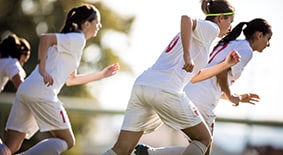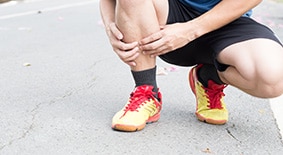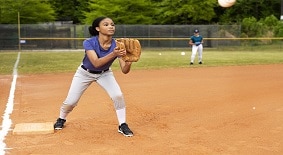5 Tips to Prepare Your Teen Athlete in the Offseason
Updated 4/5/21
Parents and coaches should be mindful of how to help a growing athlete safely return to sports after the offseason.
Because your teen athlete’s growing body can change so quickly, it’s always a good idea to prepare for the season ahead so his muscles and joints aren’t shocked to return to the stresses and movements of his sports. Preparing in the offseason can lower your teen’s risk for a training-related injury when practice starts next season.
It can be a little stressful figuring out the best ways to help your teen between sports seasons, but the sports medicine team at Children’s Healthcare of Atlanta is here to share tips on how to get your kid back on the field, court or course safely after the offseason.
“Parents and coaches should be mindful of how to properly help a teen condition his or her body to safely return to sports after taking time off,” says Julie Johnson, PT, MPT, Clinical Manager of Sports Medicine Physical Therapy at Children's.
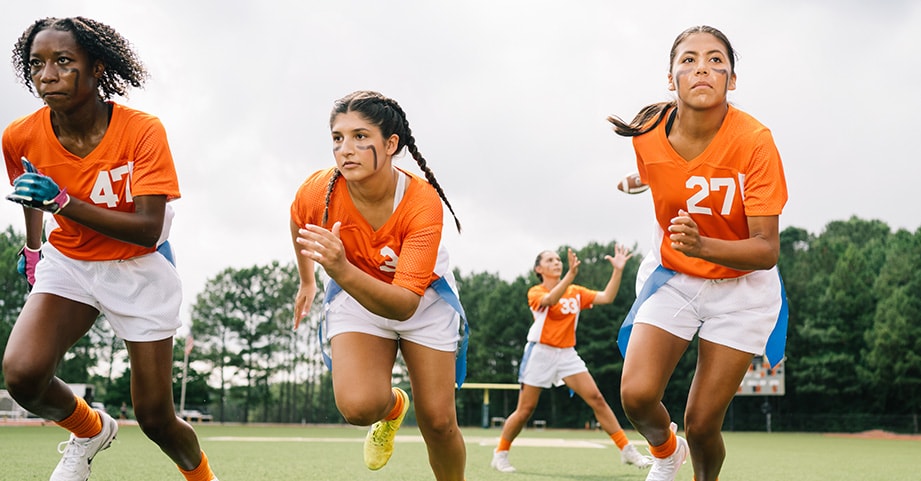
So what are the best ways for your teen to prep in the offseason?
Every sport is unique, but our pediatric sports medicine experts recommend these five tips to up your game.
1. Cross-train for balance
Focusing on a different sport during the offseason gives often-used bones and muscles a break and lets them practice different movement patterns. For example, soccer requires a lot of dynamic running, so your soccer player could try biking, swimming or low-intensity jogging as cross-training. Cross-training is a great way for your teen to participate in multiple sports. Your teen can continue to increase her skills and strength while her bones are still growing without overstressing any one area of the body for too long.
2. Do strength and cardiovascular training for performance
Strength exercises engage muscles that athletes use in their sports and make them stronger. A strength training program utilizes resistance bands, weight machines and free weights to help exercise the muscle groups specific to an athlete. Cardiovascular exercises, which typically involve performing the same motion repetitively, such as swimming or jogging, build the stamina and function of the heart and lungs, allowing an athlete to play his or her sport for longer periods of time before becoming fatigued. To find an appropriate training program for your teen, look into working with a sports performance coach or personal trainer who is familiar with your child’s sport of interest and appropriate exercise mechanics.
3. Improve flexibility
During the offseason, muscles and joints can become stiff. Your teen can use this time to improve flexibility by trying new exercises that help lengthen and loosen the muscles used in his sport. Yoga and Pilates are two such activities that can help improve flexibility and core stabilization in growing athletes.
4. Eat healthy, hydrate and sleep well
Eating healthy meals, staying hydrated and getting enough sleep are just as important when a teen is taking time off as they are during the sports season. Maintaining proper nutrition in the offseason keeps muscles and bones strong and growing, and hydration can help an athlete avoid heat-related illness when he or she returns to sports. Check out these breakfast and lunch ideas to fuel your athlete. The Centers for Disease Control and Prevention (CDC) recommends eight to 10 hours of uninterrupted sleep each night for children ages 13 to 18. Teens who do not get enough sleep are at a higher risk for obesity, diabetes, injuries, poor mental health, and problems with attention and behavior.
5. Return to sports slowly
If athletes jump back into their sports too quickly, they are more likely to experience an overuse injury. In the weeks leading up to the start of a new season, teens should slowly start practicing for their sports. They should gradually increase the number of days per week and the length of time they practice, as well as the intensity of their practice. For example, one month prior to the start of a season, athletes should practice twice in the first week for 45 minutes, three times in the second week for 60 minutes and so on until they are back to practicing full time and are ready for competition.
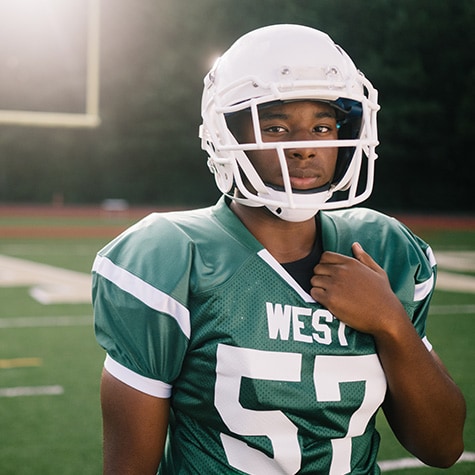
We are exclusively dedicated to kids and teen athletes.
The Sports Medicine Program at Children’s is one of the only programs in the country dedicated exclusively to caring for growing athletes. Our team is specially trained to care for teen athletes with sports-related injuries and illnesses.
Learn MoreKeeping Growing Athletes Healthy and Strong
Julie Johnson, PT, MPT, is a Clinical Manager in the Sports Medicine Physical Therapy Program and is the Program Director of our Sports Residency Program at Children’s Healthcare of Atlanta. Julie is a board-certified specialist in sports physical therapy and has more than 20 years of experience in sports therapy. She is a member of the Pediatric Research in Sports Medicine Society and was the recipient of the 2019 Achievement Award for Physical Therapy. She has a passion for injury prevention as well as for helping kid, teen and college-age athletes get back to their sports safely after an injury or surgery.
This content is general information and is not specific medical advice. Always consult with a doctor or healthcare provider if you have any questions or concerns about the health of a child. In case of an urgent concern or emergency, call 911 or go to the nearest emergency department right away. Some physicians and affiliated healthcare professionals on the Children’s Healthcare of Atlanta team are independent providers and are not our employees.
Contact Us 404-255-1933
